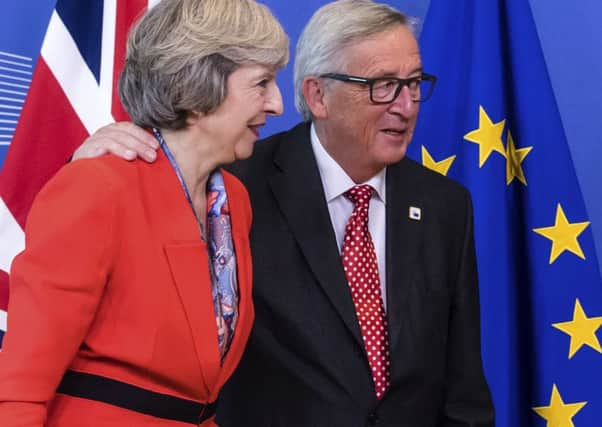Bill Carmichael: It's time that we called Juncker's Brexit bluff


In a speech to the Belgian parliament, Jean-Claude Juncker said: “The British people have to know, they know already, that it will not be at a discount or at zero cost… So the bill will be, to put it a bit crudely, very hefty.”
According to some estimates the EU is likely to demand the UK pays up to £50bn as the price for our independence. Cheap at twice the price if you ask me.
Advertisement
Hide AdAdvertisement
Hide AdBut it is worth trying to analyse what Juncker is up to here. Does he really believe that trying to bully us will make us change our minds? I don’t think so.
Juncker’s sabre rattling clearly demonstrates how weak a hand he has got in the upcoming negotiations.
What is he going to do if the UK simply refuses to pay this “Brexit Bill”? Throw us out of the EU? Erm… yes please!
The key thing to understand here is that the fear giving them sleepless nights in Brussels isn’t that Brexit will be a terrible disaster. No, they will be delighted if that happens.
Advertisement
Hide AdAdvertisement
Hide AdThe real worry is that Brexit will be a terrific success. If the UK is able to establish friendly relations and lucrative trade deals, both with countries in the EU and around the globe, then the other member states will start to question the value of tying themselves to giant job-destroying bureaucracy.
And if that happens the whole thing could unravel very quickly. This explains Juncker’s intervention. His comments are not aimed at the UK, but at the remaining 27 EU members. He is in effect saying: “Don’t even think about leaving or we’ll hit you very hard.”
What kind of a club is it that has to use threats to stop members from leaving? A very bad one, that’s what.
So the EU is in a terrible bind. If they are too hard on the UK in upcoming trade negotiations, they will destroy jobs and growth in their own countries. But if they are too soft it could encourage other countries to consider leaving.
Advertisement
Hide Ad